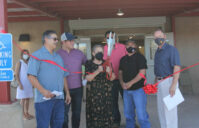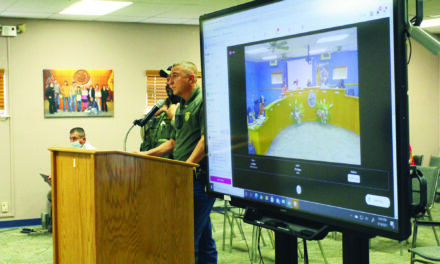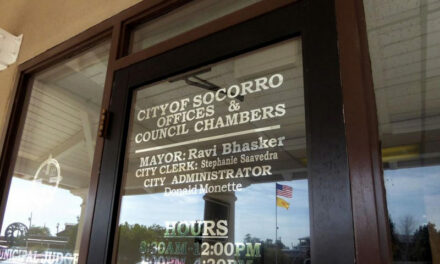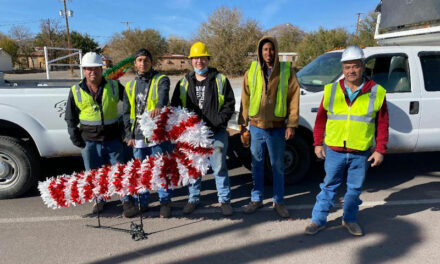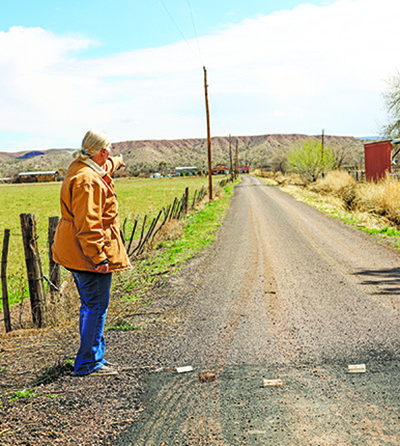With funding secured, units may be available for lease in the first permanent supportive housing apartment building in Socorro by summer 2023.
Vista de Socorro is the name of the planned project. The apartment building will offer subsidized rent and services on-site to help stabilize residents. The services will include case management, job coaching, life skills programming, free transportation, a food pantry and substance abuse counseling.
“This model is called permanent supportive housing,” said Jennifer Lopez, a consultant with Project Moxie. “It’s a best practice for helping folks who have high acuity needs, meaning they’ve got substance abuse issues or they might have a disability or a number of behavioral health challenges. What we know is they can’t get better, they can’t get healthy, without housing and they can’t stabilize without services once they get housed.”
When housing and services are combined, 80 percent of people who could not stay housed can stay housed, said Lopez.
“So it’s a really a solution to homelessness,” she said.
The apartment building will include 32 one and two-bedroom units, with seven units set aside for special needs populations, which includes people who have experienced homelessness, people who may have been incarcerated, or people with disabilities. Vista de Socorro will be located south of downtown, near the high school, the hospital and the mental health services buildings. The rent for all of the apartments will be subsidized using housing vouchers that have been connected to the project. The land was donated by the city of Socorro. Socorro County will manage the on-site services.
Financing should be finalized by March 2022. Building will begin immediately after financing is finalized. Lopez said they hope to begin leasing apartments in the building by the summer of 2023. There is a gap between the original project cost estimate and the current cost estimate, said Lopez, due to the increase in the cost of lumber and building materials. State funding has been secured for the $6.1 million original project cost estimate. With the increase in material costs, the estimate is closer to $8 million, said Lopez, but she believes some of that cost will come down further and believes funding for that gap will be found.
Mary Ann Chavez-Lopez, director of El Camino Real Housing Authority has been working to secure the state funding for the project for three years, said Lopez. Along with the housing authority, JL Gray is a co-developer for the project. The project team also includes Project Moxie and Ethos Development.
Interest in permanent supportive housing projects has increased across the state, said Lopez. A supportive housing building recently opened its doors in Las Cruces and another project is in the works in Mescalero. The New Mexico Coalition to End Homelessness provided trainings on permanent housing in 2017 and has pushed for projects in Albuquerque, Santa Fe and hopefully soon, Taos, said Lopez. The coalition also funded bringing in consultants, including Lopez, to work on housing projects.
“It gives people hope. I think in a community it can provide people who have been on the streets a more dignified life. The practical side, if you see folks get into these apartments, they’re not in and out of jail and they’re not in and out of the hospital system,” said Lopez.



